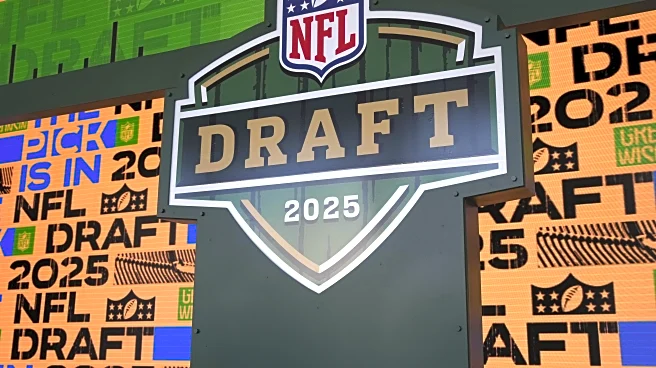What is the story about?
What's Happening?
Bill Chamberlain, a notable figure in North Carolina basketball history, has died at the age of 75. Chamberlain was the second Black player recruited by Dean Smith to play for the University of North Carolina (UNC). He was a 6-foot-6 forward who made significant contributions to the team, including being named the MVP of the 1971 National Invitation Tournament (NIT) and playing a key role in the Tar Heels' 1972 Final Four appearance. Chamberlain's basketball career began in Harlem and he was recruited from Long Island Lutheran High School in the late 1960s. His performance in the 1971 NIT was particularly memorable, as he outplayed Julius Erving in the opening round and led UNC to victory over Duke in the semifinals. Chamberlain later played professionally in the ABA and NBA, although his career was cut short by a back injury.
Why It's Important?
Chamberlain's passing marks the loss of a pioneering athlete who played a significant role in the integration of college sports in the South. His recruitment and success at UNC were part of a broader movement towards racial integration in athletics during a time when Southern schools were beginning to open their doors to Black athletes. Chamberlain's achievements on the court, including his standout performances in the NIT and NCAA tournaments, helped pave the way for future generations of Black athletes. His legacy is not only in his athletic accomplishments but also in his contribution to the cultural and social progress within college sports.
What's Next?
The University of North Carolina and the basketball community are likely to honor Chamberlain's legacy through tributes and remembrances. His impact on the sport and his role in the integration of college athletics may be highlighted in upcoming events or memorials. Former teammates and colleagues may share their memories and stories, celebrating Chamberlain's contributions both on and off the court.
Beyond the Headlines
Chamberlain's life story reflects broader themes of resilience and community support. After the sudden death of his wife in 1988, Chamberlain found solace in the support of his former teammates and the UNC community. His career in emergency management, where he trained first responders, demonstrates his commitment to service and leadership beyond basketball. Chamberlain's journey underscores the importance of community and the lasting impact of sports figures in societal progress.














